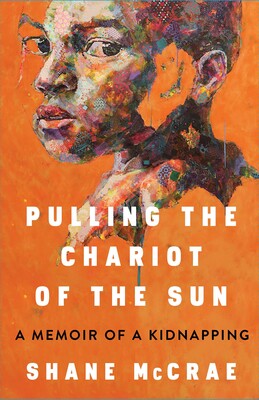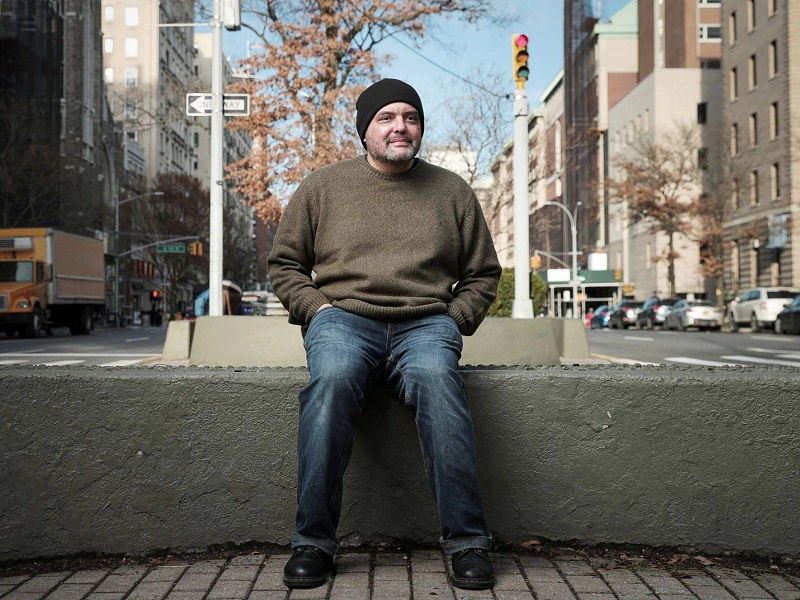Photo Credit: Dan Callister for The Telegraph
Based on an interview with our publisher Charles Clark
“I know they disliked my blackness…”
Biracial author Shane McRae, in his memoir, Pulling the Chariot of the Sun, said that digging out his repressed memories of being kidnapped as a child by his racist white grandparents was largely an emotionless experience—until he finished writing.
“For the most part, I didn’t feel much of anything,” McRae said, “other than there’s a joy in making [something], even when [it] might be sad, there’s a joy in…dealing with that material. When one is suppressing memories, you’re sort of alienating yourself from yourself, and so I couldn’t recognize that. Bringing that stuff up again was making me unhappy.”
“That stuff” included being abducted at the age of three. His grandparents lied to his father, Stanley, who was about to take McRae on a trip, claiming they wanted to spend one more day with him. When he returned to pick him up, they were gone and the house was empty.
According to McRae, he had always had the seed idea of a memoir in the back of his mind, but a tandem interview with Stanley a few years ago was the final push for him to start writing it.
 “He described going to my grandparents’ house [when he knew they weren’t there anymore],” McRae said. “Listening to him talk about it…and describe that moment [is] where I sort of realized, ‘Oh, I’ve been a kidnapped person my whole life and that [realization] restructured how I thought about it.”
“He described going to my grandparents’ house [when he knew they weren’t there anymore],” McRae said. “Listening to him talk about it…and describe that moment [is] where I sort of realized, ‘Oh, I’ve been a kidnapped person my whole life and that [realization] restructured how I thought about it.”
That’s where a “long, deep pain” about his experiences started to happen, and a recognition of what he had been through arrived. The result, he said, is likely feeling everyday emotions “too much,” and a difficulty in conjuring immediate emotions about his experiences.
“[They are] unnamable and specifiable,” he said of his feelings, “but I know it’s happening – a sadness—but [they are] not difficult for me to have.”
To keep him from thinking about Stanley or asking about him, McRae’s grandparents used lies. Stanley was never interested in him after he was born. He had moved to Cameroon, no, Brazil. His side of the family had stolen all of McRae’s Christmas presents to sell them.
For McRae, the father who had been “more a wish than a man,” a myth, and a shadow became a person whom he wondered about at the age of eleven. Since Stanley was not a “subject for conversation” in his grandparents’ house, McRae said his thoughts centered on his father’s name (which he did not know), what he would be like, and about his own blackness – things he constantly thought about but did not openly address.
Like the interview with his father became the impetus for writing the memoir, an ironic encounter with his grandfather giving him the collected works of Langston Hughes helped fuel his love of poetry. McRae admitted that the action “might sound a little strange,” but he thought it “was the most obvious thing” that his grandfather could do because he was Black.
“I was still being kind of completely encompassed by his racism,” said McRae. “He had known me for most of my life. He had some sense of who I was, but I don’t think he was making his decisions based on anything he knew about me, other than that I’m black. That was it, even though he raised me.”
Raising McRae to be alienated from Stanley, a black man, and he himself cognizant of his blackness, led to a disconnection between his grandparents, who disliked anyone who was not white, and him. This led to a sense of consciousness and awareness that they could not define for him or change about him.
“I think that we derive a sense of who we are from the things that we do and the things that we love,” said McRae. “So, my development of my sense of myself, came through—a lot of it was skateboarding, a lot of it was the music that I listened to, and a lot of it was poetry, you know, in those crucial years when you’re thirteen, fourteen, fifteen. Those were the things that I was thinking about.”
The wondering about his father culminated when McRae met him for the first time in his teens. McRae said it was not the big moment people would expect. He called the emotional level of the meeting overwhelming and “too difficult to feel anything.”
“I knew I was very happy to see him,” he said, “but I couldn’t even really feel that in the way that one feels an ordinary happiness during the course of one’s day. [That’s the kind] which you just sort of feel immediately. It wasn’t like that. It was too big to process.”
Meeting his father, an interest in Sylvia Plath’s poetry (“…there was some kind of rage…really unfocused anger. That appealed to me.”), getting his GED, becoming an avid skateboarder and reader (according to a New York Times article, he read 200 pages from eight different books a day) helped shape McRae into the writer he is – wounded by his past but still writing.
“I think there must be some people for whom art works as therapy,” he said. “I don’t make it for that, and I also don’t think it could do that for me. I don’t want to have that kind of relationship with it. [My kidnapping is] a wound, that I don’t think it really can be healed, maybe if I had approached it differently, a long time ago, but I think it’s rather just something that, you know, I have to live with.”








